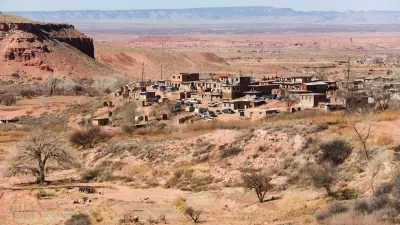This piece from NPR looks at the debate over plans to use more than $7 billion from the stimulus plan to expand broadband Internet access in rural areas.
"The stimulus package includes $7.2 billion to expand broadband Internet access into 'underserved' and rural areas. Katz listed ways that the $7.2 billion could be put to better use, including an effort to combat infant deaths. But he also spoke of rural places as environmentally hostile, energy inefficient and even weak in innovation, simply because rural people are spread out across the landscape."
"Rural advocates say high-speed access is a necessity in a global economy, and a critical part of economic revival and survival for rural places."
"There are plenty of other anecdotal examples of broadband bringing jobs and commerce to rural towns. But there aren't definitive studies or data, says Shane Greenstein, an economist at Northwestern University who specializes in telecommunications."
"The reach of broadband nationwide is also unknown. There is no comprehensive tracking of broadband service, including which neighborhoods, towns and cities have it and which don't. No federal agency or private group keeps track."
"But surveys conducted by the Pew Internet and American Life Project indicate 57 percent of the people interviewed nationwide do have broadband connections at home. But only 41 percent of the rural respondents connect at high speeds."
"Another survey indicates that broadband generally tends to go to two kinds of rural places: counties with large farms, and mountain and beachside enclaves that attract owners of second homes and tourists."
FULL STORY: Stimulus Stirs Debate Over Rural Broadband Access

Alabama: Trump Terminates Settlements for Black Communities Harmed By Raw Sewage
Trump deemed the landmark civil rights agreement “illegal DEI and environmental justice policy.”

Planetizen Federal Action Tracker
A weekly monitor of how Trump’s orders and actions are impacting planners and planning in America.

The 120 Year Old Tiny Home Villages That Sheltered San Francisco’s Earthquake Refugees
More than a century ago, San Francisco mobilized to house thousands of residents displaced by the 1906 earthquake. Could their strategy offer a model for the present?

Opinion: California’s SB 79 Would Improve Housing Affordability and Transit Access
A proposed bill would legalize transit-oriented development statewide.

Record Temperatures Prompt Push for Environmental Justice Bills
Nevada legislators are proposing laws that would mandate heat mitigation measures to protect residents from the impacts of extreme heat.

Downtown Pittsburgh Set to Gain 1,300 New Housing Units
Pittsburgh’s office buildings, many of which date back to the early 20th century, are prime candidates for conversion to housing.
Urban Design for Planners 1: Software Tools
This six-course series explores essential urban design concepts using open source software and equips planners with the tools they need to participate fully in the urban design process.
Planning for Universal Design
Learn the tools for implementing Universal Design in planning regulations.
Clanton & Associates, Inc.
Jessamine County Fiscal Court
Institute for Housing and Urban Development Studies (IHS)
City of Grandview
Harvard GSD Executive Education
Toledo-Lucas County Plan Commissions
Salt Lake City
NYU Wagner Graduate School of Public Service





























